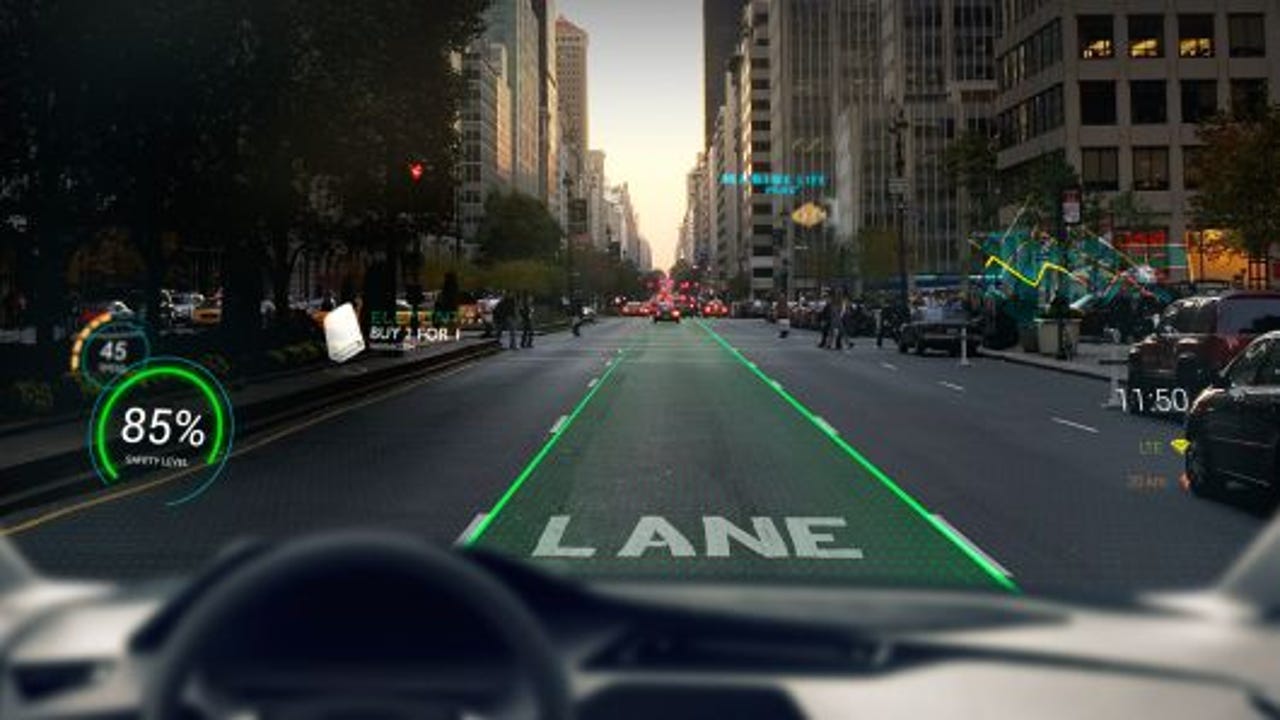Porsche and Hyundai behind AR hologram company's $80M raise


WayRay, a Zurich-based AR company that makes holograms to augment driving, just closed an $80M C-round. The fundraising was led by Porsche and included Hyundai and Alibaba Group.
That brings the seven-year-old company's total funding to over $100M on a $500M valuation. The company is actually calling its shot with a projected $1B valuation by 2019.
WayRay's technology is the closest melding of video games and on-road driving I've seen. If that's a frightening prospect, you can take some comfort in the fact that safety is one of its primary pitches.
Also: For Ford's developer ecosystem, the rubber is about to hit the road
In essence, WayRay's projector, which is smaller than most aftermarket heads up display (HUD) units, turns the entire windshield into an AR hologram. Standard instrument information, such as MPG and speed, are of course displayed, but the system also reads roads and highlights lanes with Tron-like lighting, projects navigation maps and instructions, and issues warnings about potential hazards, such as pedestrians.
It's a philosophy of technology integration in an AR ecosystem often focused on paradigm-shifting releases. Much of the lackluster adoption of AR/VR to date can be attributed to the way technology developers have tried to pitch novel new systems. Adoption is likelier to happen as mixed reality technologies integrate into existing consumer experiences.
Also: Amazon may be building an Alexa home robot CNET
In fact, the thing that's so surprising about WayRay's tech, and likely the reason it's getting the vote of confidence from legacy automotive players, is that it integrates seamlessly with the existing driving experience. The AR display coalesces a number of technologies already found in the cockpit of modern cars without introducing new screens or UX demands.
There's virtually no learning curve, to pun badly.
Porsche previously teamed up with WayRay for Startup Autobahn, a showcase of European automotive technology, where WayRay took Grand Prize for top automotive startup. WayRay plans to start a pilot production line in Germany.
Hyundai seems as interested in the future applications of WayRay's hologram AR as in its driving applications.
Also: Why learning to code won't save you from losing your job to a robot TechRepublic
"The Hyundai-WayRay collaboration will help us establish a brand new eco-system that harnesses AR technology to enhance not only navigation systems but establish an AR platform for smart cities and smart buildings, which are Hyundai Motor Group's new business interests," said Dr. Youngcho Chi, CIO and EVP of Hyundai Motor Group.
Though focused initially on automotive applications, WayRay has plans to expand into sectors like construction and home electronics.
Beep Boop Bop: A brief history of robots, Part I
Previous and related coverage:
Robotics in business: Everything humans need to know
An executive guide to the technology and market drivers behind the $135 billion roboticsmarket.
Living Machines: A quick history of robots (Part I)
Wanted: Robot life coach (no, really)
The unique job is a hint of what's to come as robots increasingly join us in the human world
Gorgeous robots made of high tech paper are mesmerizing